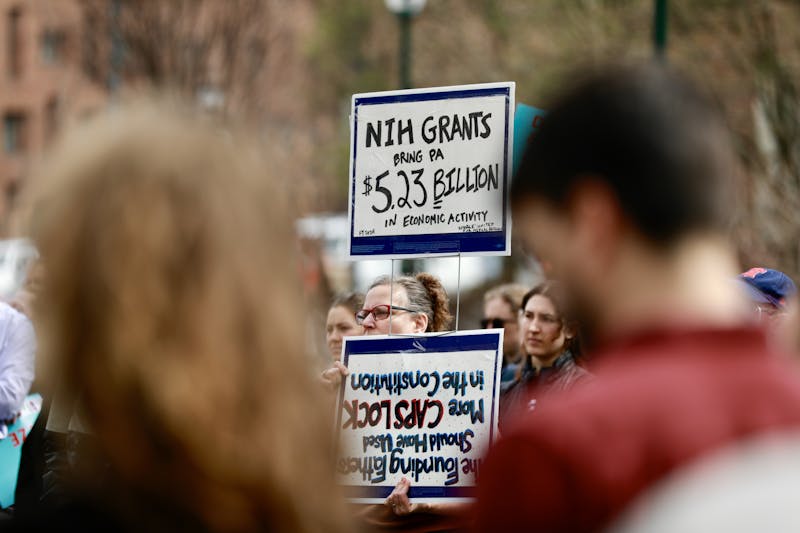Though work-study jobs at Penn are facing a potential budget decrease next year, funds from President Obama's stimulus package are expected to help keep the number of available jobs steady.
There has been no significant change this academic year in the number of work-study jobs or students employed, according to Student Employment Office manager John Rudolph. The office currently has 5,541 jobs in its database and 2,579 students employed.
All students who are granted financial aid receive work-study funds, but not all of them choose to take jobs, often due to academic or extracurricular scheduling reasons. Some students also choose to convert part of their work-study funds to loans, said Rudolph.
The average financial-aid package size this year was $34,269 - a slight increase of 2 percent over the previous year - and consisted of $30,142 in grants, $1,449 in loans and $2,678 in work-study, according to Student Financial Services director Bill Schilling.
The majority of funding for student employment on campus comes from the U.S. Department of Education's Federal Work-Study Program, said Schilling.
During the school year, FWS grants cover 60 percent of a student's wages, with the other 40 percent paid for by the individual Penn employer. During the summer after much of the federal dollars get used up, the percentages are reversed.
This academic year, Penn received $4.6 million in FWS grants - a number that has fluctuated over the years but has not changed dramatically, said Schilling.
However, Penn is expected to receive a tentative $200,000 decrease in funding from the program in the next fiscal year, which begins July 1, according to Rudolph. In spite of the drop, he does not anticipate a decrease in the number of work-study jobs available to students next year.
At the same time, the school expects to gain a share in the additional work-study funds for 2009-2010 from President Barack Obama's stimulus package, said Schilling.
On the part of students, Rudolph expects an increase in the number of applications for summer work-study jobs but said it is still too early in the application process to determine for certain.
"What's going to happen in the fall I couldn't even tell you - we're heading in a certain [upward] direction, but like the rest of economy, this is a big guessing game," said Rudolph.
He added that he has not seen any evidence of a significant economic impact on work-study jobs in general.
Two of the main incentives for Penn employers to hire students - outside their affordability - are helping the community and research, according to Rudolph. Not only do employers benefit from taking in students to conduct research and other work, but "students are actually finding work-study jobs that complement their course of study or areas they're interested in," he said.
And for students like College freshman Julie Perkins, the economy hasn't affected the amount she works. She attributed the stability in students' hours to employers already having set schedules - since it is relatively late in the year - and to the limit on the number of hours work-study students can work per week.
"It probably depends on whether students also have to give money to their parents to help pay for their education," said Perkins.
The Daily Pennsylvanian is an independent, student-run newspaper. Please consider making a donation to support the coverage that shapes the University. Your generosity ensures a future of strong journalism at Penn.
DonatePlease note All comments are eligible for publication in The Daily Pennsylvanian.







